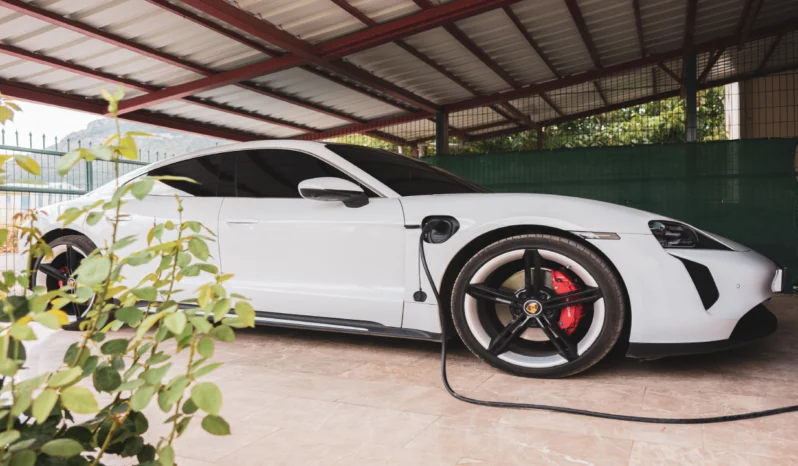Electric vehicles or EVs have become super popular these days as a cleaner replacement for the conventional gasoline-run cars. As the world became increasingly aware of the degradation of the environment and technological advancement, people think of switching to electric. But like any huge investment, owning an electric vehicle also bears its pros and cons. This article looks into the special pros and cons of electric cars to guide possible buyers in making informed decisions.
Pros of Electric Vehicles
Environmental Benefits
- Zero Tailpipe Emissions: Unlike any vehicle with an internal combustion engine, EVs give no tailpipe emissions. This is especially true for cities where air quality is often threatened by car emissions.
- Fewer Greenhouse Gas Emissions: Despite the emissions from generating electricity, average total greenhouse gas EVs emit. It is less than compared to other gasoline-powered cars. Precisely, as renewable power sources are invested into the grid, the benefits of EVs on the environment will continue to change.
Cost Savings
- Lower Fuel Costs: Charging an electric vehicle is always cheaper than refueling the gasoline car. Estimates indicate that electricity charges per kilometer are many folds lower than for gasoline and thus saving a huge amount of dollars over the life of the vehicle.
- Less Maintenance Expenses: EVs have fewer moving parts than conventional vehicles, and thus, there is less need for maintenance. They do not require oil changes and regular exhaust system maintenance, which is sure to save them much in the long term.
- Incentives and Rebates: Several governments are offering monetary incentives to encourage the purchase of electric vehicles. These include tax credits and rebates that help reduce the high price tag of these vehicles.
Performance Advantages
- Instant Torque and Acceleration: Electric motors supply power instantaneously, resulting in much faster acceleration than many traditional vehicles. This makes for an exciting ride.
- Quieter Operation: EVs are much quieter than traditional vehicles, which reduces noise pollution and makes for a more pleasant ride.
Technology Advancements
- Better Battery: Better battery technology ensures that the electric vehicle has greater ranges and faster charging. Most new models now cover over 300 kilometers on a single charge, which eliminates range anxiety. One of the biggest concerns people have before buying an electric vehicle.
- Intelligent Features: There is vast amounts of technology found in newer electric vehicles-particularly through some modifications of regenerative braking. Energy recovery while braking increases the mileage potential of the vehicle.
Disadvantages of Electric Vehicles
Narrow Range
- Range Anxiety: Although science continues to improve in regards to batteries, the driving mileage of most EVs is significantly smaller compared to gasoline-fueled units. Most electric cars will only take a distance between 200 and 300 kilometers on one charge, which may not be sufficient for long-distance travel without careful planning.
Challenges in Charging Infrastructure
- Availability of Charging Stations: Although the number of charging stations is increasing, they are still not as many as gas stations. Owners might have to drive further distances in order to find charging stations, especially in the country side.
- Longer Charging Time: an electric car takes much longer to be charged as compared to filling the tank of a gas-powered vehicle. The range charge can take anywhere from 20 minutes to several hours, depending on whether it is a fast charger at home. It means that owners need to plan their trip based on how they want to charge the vehicle.
- Upfront Costs: While the electric vehicle is still costlier to buy than a similar gasoline engine car, due to expensive battery technology and materials in their manufacture. This upfront cost is being reduced with technology improvements and economies of scale. It remains an obstacle for most consumers thus far.
Battery Issues
- Degradation of Batteries with Time: The efficiency of an EV battery degrades with time, which causes the range and efficiency to be lost. Replacing the battery of an EV is costly and thus a significant consideration in the long-term costs of owning one.
- Environmental Impact of Battery Production: The manufacturing and disposal of lithium-ion batteries pose ecological concerns because of resource extraction processes and potential waste issues during the disposal of such a battery.
ELCTRIK Speaks
Electric vehicles are one of the most significant milestones that will make transportation sustainable. Prospective buyers should balance the advantages with the disadvantages. Consumers can make the right transition into electric mobility by adopting well-thought plans that will work along with their current value set and lifestyle needs. With progress in technology, which will eventually be followed by infrastructure development, most of these discomfitures will disappear with time. Electric vehicles would then become much more feasible for the majority.






